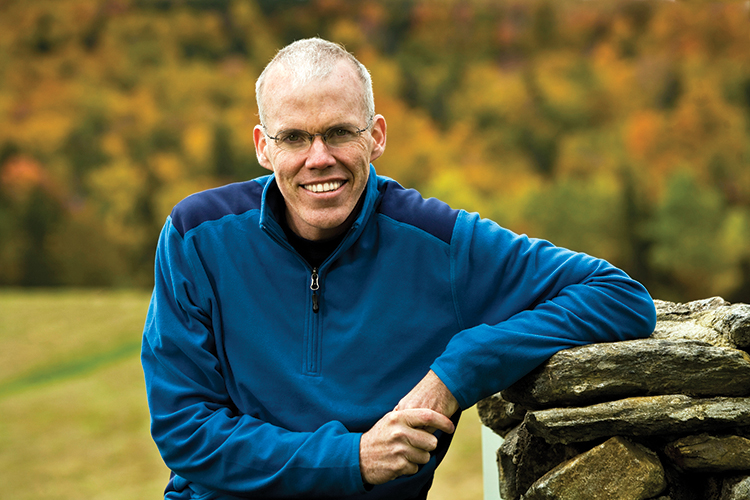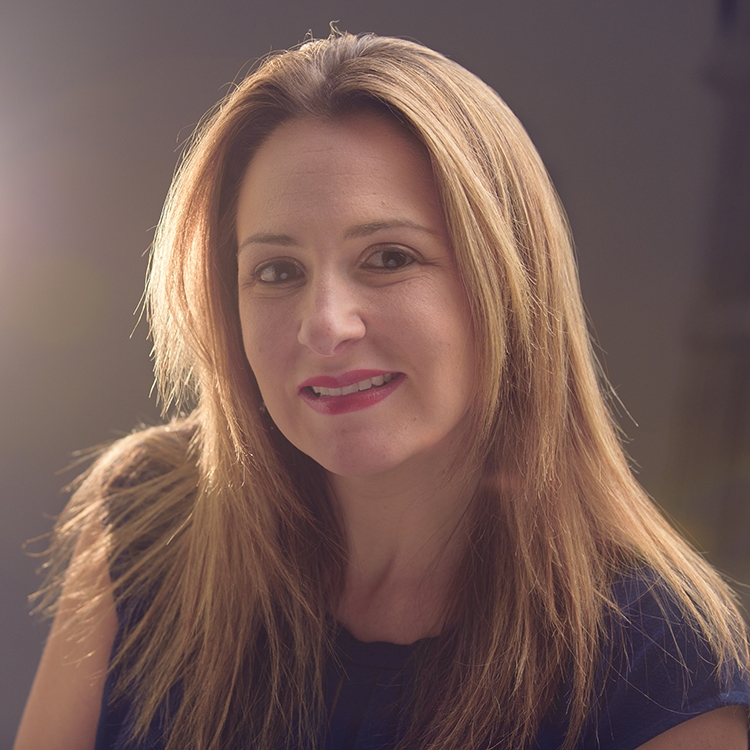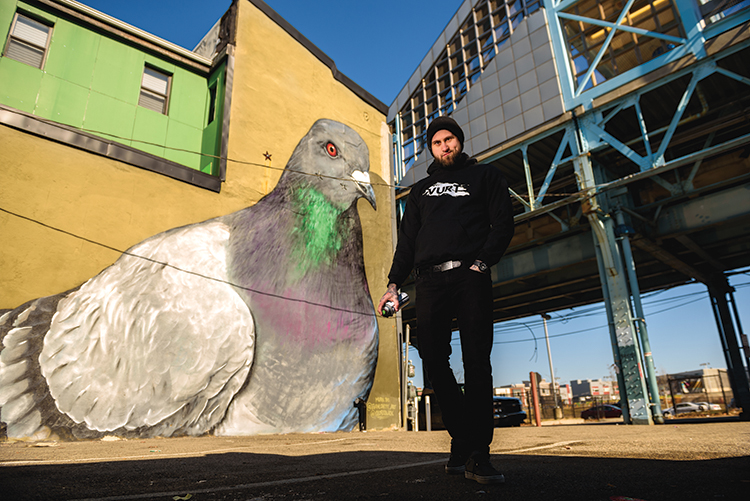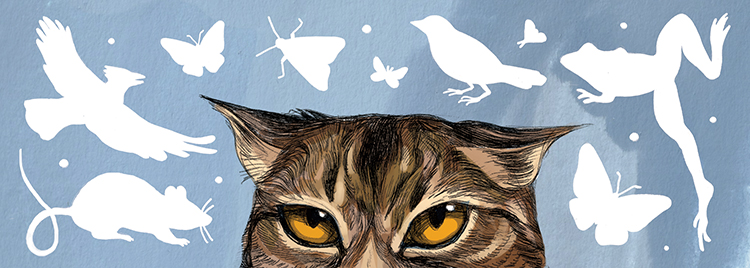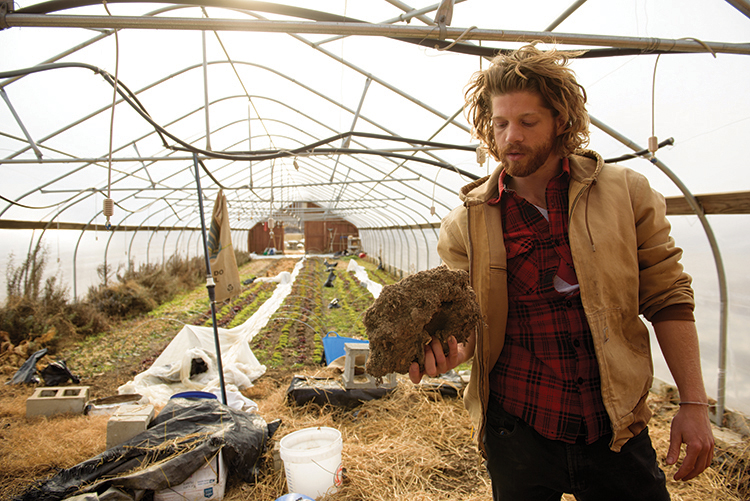by John Henry Scott
When a conversation becomes as extensive as the one surrounding climate change, it can be difficult to remember where it started. Granted, it would be pretty hard to isolate a single point of origin for an entire field of study, developed by decades of observation and research. However, when attempting to identify the moment when climate change became a global conversation, one possible catalyst would be the publication of author and environmentalist Bill McKibben’s 1989 book “The End of Nature.” Considered to be the first book about climate change for a general audience, “The End of Nature” helped spread the idea—from the scientific community to the world at large—that carbon dioxide and other greenhouse gas emissions affect global weather patterns.
Since then, McKibben has written a dozen books about environmental issues as well as many articles and columns for publications such as The New Yorker and The Atlantic.
This past November, he published his first book of fiction, “Radio Free Vermont: A Fable of Resistance,” inspired by the outcome of the 2016 election. The book explores themes of nonviolent resistance and increased sustainability through community and local economies, suggesting that creativity is key to effecting change.
Climate change is not the focus of the novel, although it is addressed at points. Instead, the plot of “Radio Free Vermont” follows Vern, an aging radio host with a lifelong career in local broadcasting, as he organizes a grassroots effort to allow Vermont to secede from the United States. Along the way, he receives help from Perry, a teenage tech-wiz; Trance, a former Olympic biathlete; and Sylvia, a self-reliance guru; all of whom serve as caricatures to embody traits McKibben feels are representative of Vermonters and their culture, such as resourcefulness, neighborliness, determination and good humor.
The cartoonish characters fit the tone and shape of the novel, which is upbeat and whimsical while managing to address actual issues. There is a sense of play to the writing which seems to advocate for itself as a means of problem-solving—complex problems call for creative solutions.
As the novel progresses, it becomes clear that McKibben is not actually suggesting secession as a viable remedy for the problems of Vermont or any other state. Instead, it seems he has created an allegory of the old phrase attributed to Scottish town planner and social activist Sir Patrick Geddes, “Think local, act global.”
Grid recently had a chance to ask McKibben as few questions via email concerning the novel, fiction as a medium and how local economies translate to larger cities such as Philadelphia.
What prompted you to write a novel? What about fiction interested you?
I’d been working on it for a long time, mostly out of homesickness for Vermont as I traveled in my role as a climate advocate. I was very interested in resistance, and it seemed like a good way to write about it—to help people understand how it can be creative and fun.
You’ve built a career in nonfiction writing, publishing more than a dozen books over the past two decades. Why did you choose this moment to write a work of fiction?
Well, I decided to publish it when Trump got elected. Everyone was sad and anxious, and it didn’t seem like we needed a dark and difficult book from me. Instead, time for something that mixed its meaning with good humor—and a fair amount of beer.
Did you encounter any challenges working within this medium?
I found it great fun. To me, the characters were like interview subjects—who generally said what you wanted them to say.
Did you receive any valuable advice from fiction authors during the writing of “Radio Free Vermont”?
I didn’t dare tell a soul, except my wife, Sue Halpern, who is a very fine novelist and who encouraged me to keep at it.
Beyond the plot of secession from the United States, it seems that a lot of “Radio Free Vermont” is about building a sustainable community/economy in a rural state. What suggestions do you have for people who are interested in creating a sustainable, local economy but who live in a large city such as Philadelphia?
Well, cities seem much easier in many ways. Everything is so close! You don’t have the big distances rural people must deal with. There’s less land to grow food, but more than you would expect. And so many other resources—Philly is full of people like Judy Wicks who have been hard at work on this problem.
What are some things that people who live in urban areas can do to reduce their dependence on imported products/resources?
Seek out and enjoy things that come from close by. So, beer—which there’s lots of good examples of in Philly. This is all much easier for me because I never learned to drink coffee—even with global warming it’s going to be a while before you’re growing that in Pennsylvania.
In the novel, the Coors Brewing Co. is condemned but the character of Sylvia wears Carhartt and drives a Subaru, brands that seem to serve in establishing her Vermonter identity. Can you talk a little bit about this identity and the difference between Coors and Subaru?
Well, for the moment we don’t actually have any Vermont car companies to choose from. Also, Coors Light tastes really terrible, but Subarus work pretty well—in my memory; it’s been awhile. For some reason they don’t have hybrids.
Where might you, personally, draw the line in terms of ethical consumption?
If I’m drinking beer from farther than about a half mile away, it seems to me like I’m doing it wrong.


